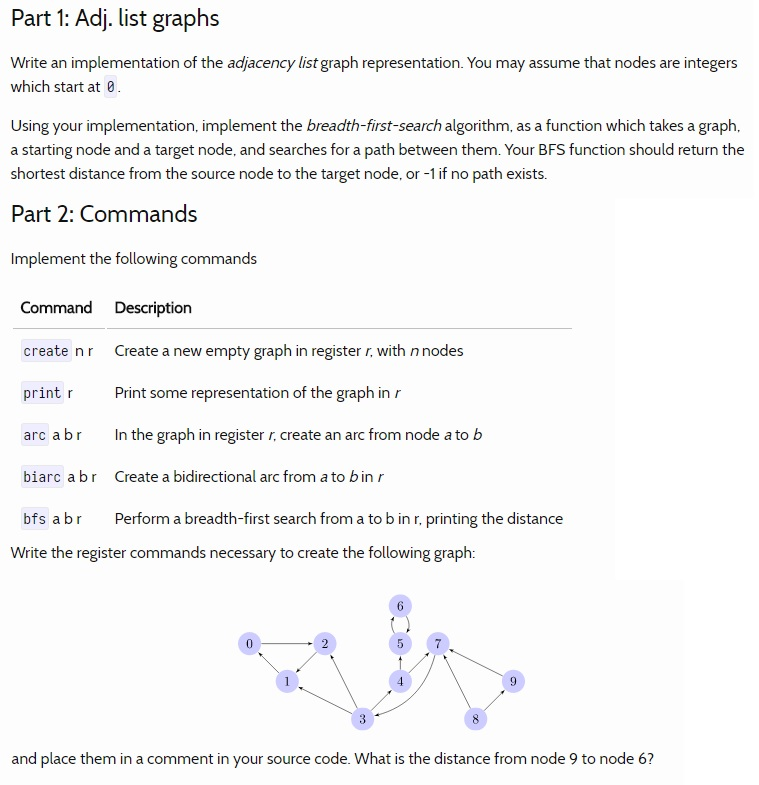Question
Data Structure in C++ Graphs and Breadth-first Search Please fix and implement this homework. Here is my unfinished code: #include #include #include #include #include #include
Data Structure in C++
Graphs and Breadth-first Search

Please fix and implement this homework.
Here is my unfinished code:
#include #include
using graph = vector>;
class graph { int V; list *adj;
public: graph(int V) { this->V = V; adj = new list[V]; }
struct edge_type { float weight; int destination; };
void create(int src, int dest){ edges.at(src).push_back(edge_type{w, dest}); }
void print(string reg){ cout
void arc(string r1, string r2, string result){
}
void biarc(string r1, string r2, string result){
}
void bfs(string r1, string r2, string result){
}
}
};
int main(){ using std::cin; using std::cout; using std::endl; string line; graph execute = graph(); while(true){ cout "; getline(cin,line); string word; // Have a buffer string std::stringstream ss(line); // Insert the string into a stream vector words; // Create vector to hold our words while (ss >> word) words.push_back(word);
if(words[0] == "create"){ int val = atoi(words[1].c_str()); // Change string into$ execute.create(val, words[2]); }
else if(words[0] == "print"){ execute.print(words[1]); }
else if(words[0] == "arc"){ execute.arc(words[1], words[2], words[3]); }
else if(words[0] == "biarc"){ execute.biarc(words[1], words[2], words[3]); }
else if(words[0] == "bfs"){ execute.bfs(words[1], words[2], words[3]); }
else if(words[0] == "stop"){ return 0; }
else{ cout Part 1: Adj. list graphs Write an implementation of the adjacency listgraph representation. You may assume that nodes are integers which start at 0 Using your implementation, implement the breadth-first-search algorithm. as a function which takes a graph a starting node and a target node, and searches for a path between them. Your BFS function should return the shortest distance from the source node to the target node, or -1 if no path exists Part 2: Commands Implement the following commands Command Description create nr Create a new empty graph in register r. with n nodes print r Print some representation of the graph in r arc a br n the graph in register r, create an arc from node a to b biarc abr Create a bidirectional arc from ato bin r bfs a br Perform a breadth-first search from a to b in r, printing the distance Write the register commands necessary to create the following graph: and place them in a comment in your source code. What is the distance from node 9 to node 6
Step by Step Solution
There are 3 Steps involved in it
Step: 1

Get Instant Access to Expert-Tailored Solutions
See step-by-step solutions with expert insights and AI powered tools for academic success
Step: 2

Step: 3

Ace Your Homework with AI
Get the answers you need in no time with our AI-driven, step-by-step assistance
Get Started


